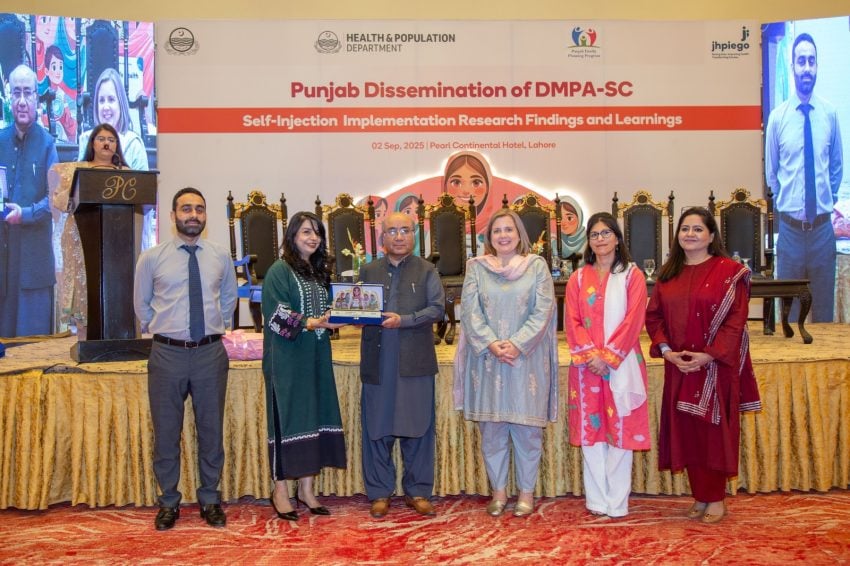LAHORE – The Government of Punjab, in collaboration with Jhpiego and supported by the Bill & Melinda Gates Foundation, organised a high-level dissemination event in Lahore to share the findings from a five-year implementation research study on DMPA-SC self-injection.
The event brought together senior government officials, development partners, researchers, service providers, and representatives from the media.
This study, conducted across 43 health facilities in Kasur and Khanewal, reached more than 8,500 women. Of those, 38% confidently self-injected under supervision and took additional doses home. These results demonstrate the feasibility, acceptance, and empowerment potential of self-injection, highlighting its ability to expand contraceptive choices for women in Punjab.
Dr. Muhammad Khalil Ahmed, the Director General of Health in Punjab, spoke at the event, praising the initiative and reaffirming the government’s commitment to enhancing innovative family planning solutions in line with Punjab’s goals. Capt. (R) Dr. Usman Ali Khan, Program Director of the Punjab Family Planning Program, who moderated the policy panel, emphasised, “This research shows that when women are trusted with knowledge and access, they take charge of their health with confidence. Punjab is dedicated to applying these lessons and ensuring wider availability of DMPA-SC.”
Dr. Aminah Khan, Country Director of Jhpiego Pakistan, highlighted the importance of the findings: “Every self-injection is not just a dose—it is a moment of empowerment. Our research not only proves feasibility but also demonstrates remarkable uptake numbers that highlight women’s readiness to embrace self-care when given the right support.”
About the Research
The research comprised multiple components. A formative study conducted in 2022 explored the acceptability and feasibility of self-injection and informed the design of the interventions. A cohort study (2024–2025) will compare the 12-month continuation rates between DMPA-SC and DMPA-IM among married women aged 18–49. An observational study will assess how well women adhere to safe storage, injection timing, technique, and disposal practices at home. Together, these components create a comprehensive evidence base to guide the introduction and scale-up of DMPA-SC in Punjab.
Women’s Experiences
Healthcare providers were trained in balanced counselling and coached women in self-injection techniques. While some differences in the comprehensiveness of counselling between DMPA-IM and DMPA-SC users were noted, many women described the experience of learning self-injection as empowering. For first-time contraceptive users, in particular, the ability to handle the device and receive reassurance from trained providers helped overcome initial fears. Counselling became more than just an information session; it evolved into a pathway to confidence, autonomy, and trust in the health system.














